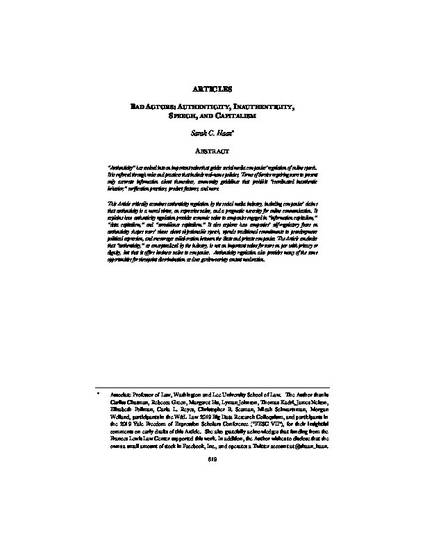
“Authenticity” has evolved into an important value that guides social media companies’ regulation of online speech. It is enforced through rules and practices that include real-name policies, Terms of Service requiring users to present only accurate information about themselves, community guidelines that prohibit “coordinated inauthentic behavior,” verification practices, product features, and more.
This Article critically examines authenticity regulation by the social media industry, including companies’ claims that authenticity is a moral virtue, an expressive value, and a pragmatic necessity for online communication. It explains how authenticity regulation provides economic value to companies engaged in “information capitalism,” “data capitalism,” and “surveillance capitalism.” It also explores how companies’ self-regulatory focus on authenticity shapes users’ views about objectionable speech, upends traditional commitments to pseudonymous political expression, and encourages collaboration between the State and private companies. The Article concludes that “authenticity,” as conceptualized by the industry, is not an important value for users on par with privacy or dignity, but that it offers business value to companies. Authenticity regulation also provides many of the same opportunities for viewpoint discrimination as does garden-variety content moderation.
